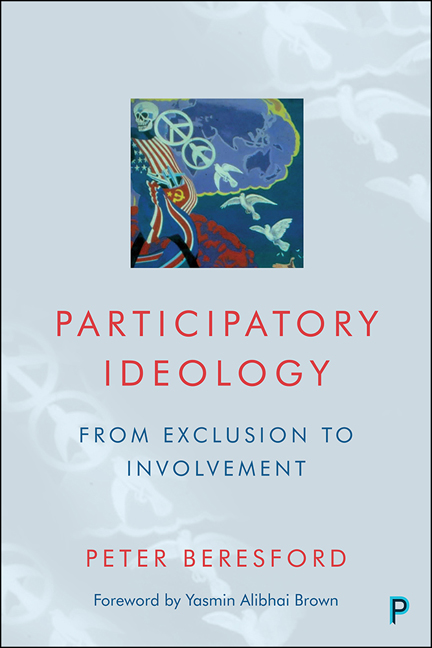6 - Learning to work together: the key to inclusive involvement
Published online by Cambridge University Press: 21 December 2021
Summary
I think Americans generally are not used to working very hard, in terms of working for the collective. I think in our country we have taken individualism to its farthest reaches, possibly.
Alice Walker, writer and activist, undatedA core theme running through this book is the need to connect two key concepts and discourses: ideology and participation. In this third part of the book, we focus on one of the most effective ways of doing this – through working together to take collective action.
This is because we have already discovered that there is a third concept central to this relationship between participation and ideology: power – and inequalities of power. Participation at its most meaningful is about recognising the significance of power and challenging such inequalities of power. At the heart of this is finding ways of maximising our own power when we seek to influence existing structures and exercise an effective say of our own. As we have seen, mostly in Western societies, we are used to and encouraged to try and do this on our own. Thus the individualised complaints procedures and consumerist market research and opinion-seeking routes we are offered under the dominant exchange relationships of the market. Such individualised approaches to rectification have been advanced as more collective approaches to consumer protection – through legislation, free legal aid and representation – have been reduced and undermined.
Such individualised responses are an essential limitation of such approaches; it is usually only where more collective models are employed, ranging from class actions to statutory provisions for consumer rights, that effective challenge becomes possible. We are flattered into believing the exchange relationships of consumerism put us into the position of kings and queens, but of course generally acting on our own, we have no kingdom to defend us. While academic talk of welfare state relationships, putting us in the position of passive pawns, flattered new Right political masters who were privatising public services in the 1990s, it cynically ignored the safeguards that state welfare had offered for the health and wellbeing of the nation (Le Grand, 1997).
Central to challenging unequal and excluding relations, systems and indeed political ideologies is working together for change. All effective struggles are collective struggles.
- Type
- Chapter
- Information
- Participatory IdeologyFrom Exclusion to Involvement, pp. 89 - 98Publisher: Bristol University PressPrint publication year: 2021



